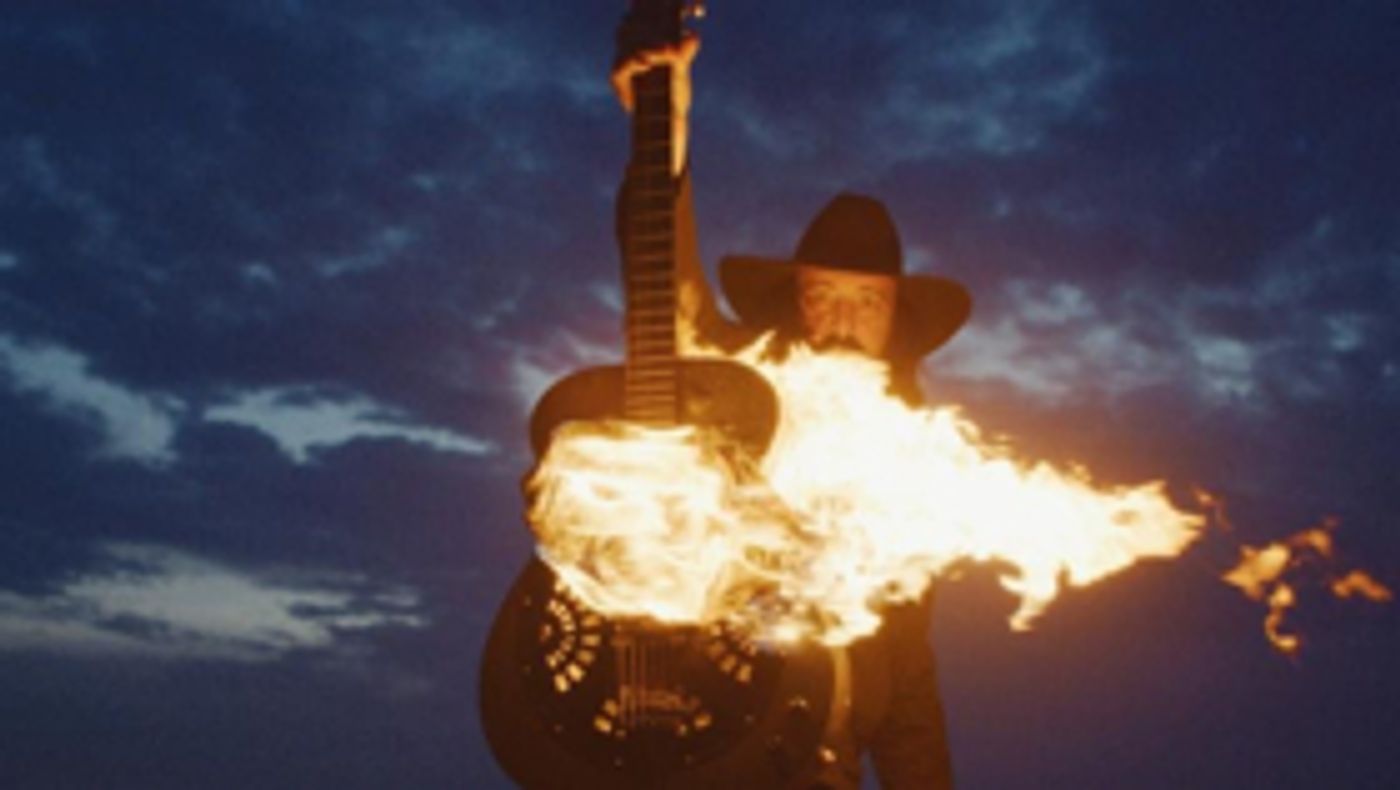Country-Psych/Blues Musician, Brother Dege, Performs on 9/30 at Mercury Lounge to Support New Album

Hand-picked by Quentin Tarantino for inclusion in the movie and soundtrack to "Django Unchained", for which he received a Grammy nomination for his song "Too Old to Die Young", and racking up 139,643+ listeners/month at Spotify, 10m+ views to date on his YouTube channel and 500,000+ spins/month at Pandora, Brother Dege Legg remains one of the best-kept secrets in Louisiana. The singer/songwriter/musician and writer (he received the heralded Louisiana Press Award in 2004 and 2008), is an heir to a long line of enigmatic characters birthed in slaughterhouse of the Deep South. Legg's Robert Johnson-on-Thorazine-style slide work paired with his droning-rural psychedelia has brought the backwoods sounds of Louisiana (hurricanes, cows, cicadas) to life while remaining firmly rooted in the troubled and death-obsessed masters. He released his fourth album, "Farmer's Almanac", a sprawling, southern concept album that further explores the unique mysteries of small towns, in early summer on Psyouthern Records, and prior to the release he was on the road in Europe from April - June and just wrapped up a twenty date solo West Coast tour. Dege has just embarked on an East Coast/Southern tour with a full band and will be performing in NYC on 9/30 at the Mercury Lounge. The band features Dege (vocals, guitars); Greg Travasos (drums); Kent Beatty (bass); and Luke Vellion (guitars).
Teaming with otherworldly slide guitars, country psych, and barn burning anthems, "Father's Almanac" received a rave from Peter Lindblad from "Elmore" who said, "A uniquely cinematic and psychedelic subversion of traditional, death-obsessed Delta blues, Farmer's Almanac immerses itself in the dark eccentricities and rural secrecy of the Deep South, a place the mysterious Brother Dege knows like the back of his hand....a sweeping Southern Gothic concept album - think Flannery O'Connor with a taste for supernatural slide guitar - that follows his "Folk Songs of the American Longhair" and other subsequent releases with something even more apocalyptic, haunting and epic."
One of the featured tracks from "Farmer's Almanac" is "Country Come to Town", which Dege says, "Is about that odd, insecure feeling you get when one grows up in the country or a small town and must eventually do battle-in some form or another-on the killing floor of the big city."
It's been a wild ride for Legg. Like the mad love child of Son House and William Faulkner, he has burned a colorful trail through the Promised Land, working odd jobs (dishwasher, day laborer, cabdriver, embedded journalist, homeless shelter employee), hitchhiking, studying philosophy, writing, and experimenting with psychedelics - all while passionately clashing with the pecking orders, prejudices, and parochial narrow-mindedness of that thrives in small towns. Growing up, there were few promising opportunities for young man of his stripe in Cajun country and during one gloomy episode - deflated, broke, and strung out - Legg climbed the Mississippi River Bridge in Baton Rouge, determined to dive into the next life, but after a last-minute change of heart, humbly climbed back down and vowed to find a better way to exist. He immediately drove himself to rehab in a stolen Camaro and rededicated himself to his most cherished creative pursuit, namely songwriting. He formed the southern tribal rock band, Santeria who had a 10-year run of chaos and bedeviled kookiness (1994-2004). After four albums, they disbanded in an anarchic heap of bad luck, poverty, exhaustion, and Hoodoo curses they suspected were cast on the band to hasten their demise.
Living in low-rent motels and trailer parks, writing new songs that tapped into the haunting style of the Delta Blues greats, the songs poured out, spitting new life into the genre, not by hackneyed imitation, but by infusing original Delta-slide songs with his own experience of growing up in the Deep South-young, white, alienated, and lost. Home-recorded in Lomax-like austerity, this batch of songs became Legg's debut album, "Folk Songs of the American Longhair". Released in 2010, the now critically-acclaimed album - a record that Quentin Tarantino later referred to as "almost like a greatest hits album" of new Delta blues - delivered postmodern tales of desperate southerners, apocalyptic prophecies, midnight angels, hippie drifters, burning barns, and the endless ghosts that haunt the history the Deep South. Quietly self-released with no distribution, no representation, and absolutely no hype, Folk Songs of the American Longhair quickly earned 4-star reviews (UNCUT) and gained the attention of numerous tastemakers in film and TV, scoring sync placements on Discovery Channel's "After the Catch", Nat Geo's "Hard Riders", women's cycling documentary "Half the Road", and Netflix's "The Afflicted", in addition to the aforementioned Quentin Tarantino. He quickly expanded his cinematic vision of the South with two follow-up albums: "How to Kill a Horse" (2013) and "Scorched Earth Policy" (2015).
In the words of James Wilson from "IndieBandGuru", "Brother Dege has been relentless in creating outstanding albums with his own style of the blues. The word cinematic is one of the best ways to describe this collection of songs. If you are looking for true blues music, then Brother Dege is for you. This is an album that has been crafted with a genuine passion and results in a beautiful piece of audio art. If you love the blues or music with an authentic soul, then Farmer's Almanac is for you."
Watch the video for "Country Come to Town" here:
Videos

